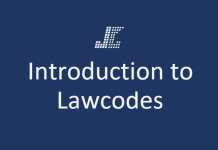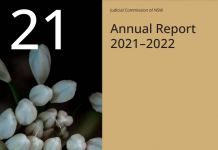Update 24 to the Sexual Assault Trials Handbook contains amendments to:
[6-000] Recent sexual assault law
The following recent cases have been added:
- BC v R [2019] NSWCCA 11, where the Crown failed to adduce evidence capable of satisfying the jury to the criminal standard that the doli incapax presumption had been rebutted.
- R v Denton [2019] NSWCCA 81, where the primary judge was correct to conclude photographs of the respondent’s penis were not admissible for comparison with complainant’s drawings of same.
- McNiece v R [2019] VSCA 78, where any evaluation of the adequacy of sentences for offending in the use of the internet for the purposes of creating, obtaining or transmitting child pornography, must reflect the gravity with which the legislature views this form of offending.
- McClelland v R [2019] NSWCCA 59, where the applicant appealed against sentence on grounds including that the sentencing judge erred by making findings about objective seriousness which contravened concessions made by the Crown.
- R v Edwards [2019] QCA 15, where it was held an error to consider that cartoons, animations or stories depicting children in sexual activity constitute a victimless offence.
- R v DP [2019] NSWCCA 55, where the court found the sentence was manifestly inadequate, where the combination of features of aggravation additional to the complainant’s age (11 years old) as an element of the aggravated offence, warranted a finding of a very high degree of moral culpability.
- RH v R [2019] NSWCCA 64, where the removal of the applicant’s children by authorities did not amount to extra-curial punishment.
- Clarke-Jeffries v R [2019] NSWCCA 56, where the applicant, who turned 18 on the day of one of the offences (s 474.26, Criminal Code), successfully appealed his sentence as manifestly excessive.
- OKS v State of WA (2019) 93 ALJR 438, where it was within the jury’s province to find the complainant’s lies, without more, precluded acceptance of her evidence of the offences beyond reasonable doubt. The appellate court rightly encapsulated the effect of the impugned direction as taking that process of reasoning away.
The following recent sexual assault legislation has been noted in the update:
- Justice Legislation Amendment Act (No 3) 2018, amended the Crimes Act 1900, adding a new aggravating circumstance to the offence of aggravated sexual assault in s 61J. It also amends the Criminal Procedure Act 1986 to enable expert evidence to be given concurrently or consecutively, and provide new provisions and offences with respect to sensitive evidence.
- Crimes Legislation Amendment (Victims) Act 2018, amended the Children (Criminal Proceedings) Act 1987. It introduces new procedures for determining applications by prosecution for child sexual assault offences to be dealt with according to law. Further amendments to the Criminal Procedure Act 1986 extend protections associated with the giving of evidence to victim, sexual offence and vulnerable witnesses. Amendments to the Crimes (Domestic and Personal Violence Act) 2007 require certain AVO proceedings be closed to the public. Further amendments were made by this Act to the Crimes (Sentencing Procedure) Act 1999, to repeal and replace Pt 3, Div 2 relating to victim impact statements (VIS). It extends VIS provisions to additional victims and introduces the right for all victims to have support person present when reading VIS. It also made new provisions related to VIS in mental health and cognitive impairment forensic proceedings.
[6-050] Other publications
The following article, which outlines the changes brought about by the Criminal Legislation Amendment (Child Sexual Abuse) Act 2018, has been published in the Judicial Officers Bulletin:
P Mizzi, “Balancing prosecution with the right to a fair trial: the child sexual abuse reforms in NSW” (2019) 31(2) JOB 11.










